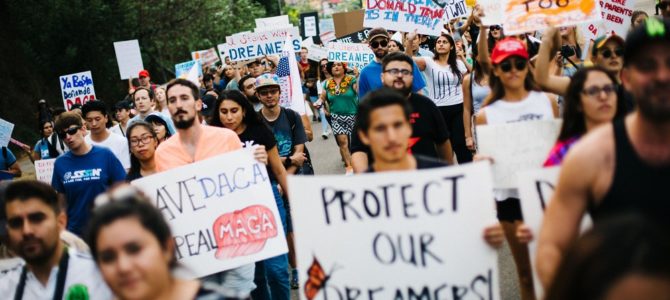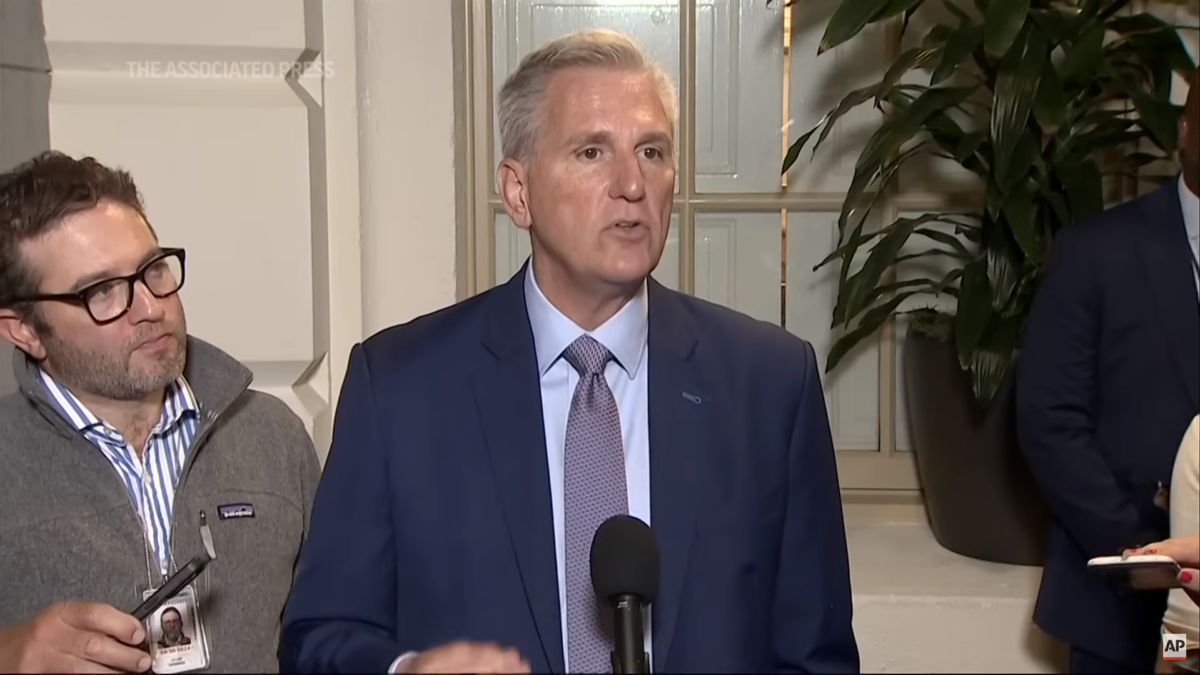
Deferred Action for Childhood Arrivals (DACA) isn’t dead, and “dreamers” aren’t being deported, even though that’s the entire basis Senate Minority Leader Chuck Schumer claims for causing the government shutdown. It’s the Great Democrat Deception of 2018.
The proof is in a petition the Department of Justice filed with the U.S. Supreme Court on Thursday, seeking immediate review of a district court judge’s decision striking President Trump’s decision to let DACA run out when it expires. That petition details the facts of DACA no one is reporting.
Those facts lay bare the fraud underlying Democrats’ politically motivated, selective shuttering of the federal government. They insist the need to protect young illegal aliens from deportation is so urgent that temporarily funding the federal government must wait for Congress to legalize them.
Let’s Look at Those Facts
Here are the facts. In a June 15, 2012, memorandum entitled “Deferred Action for Childhood Arrivals,” the Department of Homeland Security announced its secretary would, “for humanitarian reasons or simply for [her] own convenience, . . . notify an alien of her decision to forbear from seeking his removal for a designated period.”
Under the 2012 policy, following a successful background check DHS would provide “certain young people who were brought to this country as children” a two-year commitment of “deferred action.” But DACA expressly “confer[red] no substantive right, immigration status or pathway to citizenship,” because “[o]nly the Congress, acting through its legislative authority, can confer these rights.”
Prior to 2012, Congress did not legislatively address the immigration status of illegal aliens brought to the United States as children, even though President Obama had a solid majority in the Senate and House following his 2008 victory. But now, ten years later, Democrats say there is an emergency about these illegals’ status that justifies shutting down the federal government.
Two years after that 2012 executive action, DHS unilaterally expanded DACA, “extending the deferred-action period from two to three years and by loosening the age and residency criteria.” DHS also created a new policy, DAPA—the Deferred Action for Parents of Americans and Lawful Permanent Residents. DAPA deferred lawful action “for certain individuals who had a child who was a U.S. citizen or lawful permanent resident.”
In response to DAPA and the expanded DACA, 26 states sued the federal government arguing that DHS violated the Administrative Procedures Act (APA) by issuing the regulations without complying with the notice-and-comment procedures, and exceeded its authority under the Immigration and Naturalization Act (INA). A federal agreed, holding the Obama administration violated the APA and the INA.
The court issued a nationwide injunction barring the enforcement of DAPA and the expanded DAFA. In so holding, the district court stressed “Congress had repeatedly declined to enact legislation ‘closely resembl[ing] DACA and DAPA.’” But now, three years later, Democrats insist there is suddenly an emergency justifying shutting down the federal government.
Democrats Kept Refusing to Act When They Had Power
In 2015, the Fifth Circuit upheld the decision striking DAPA and the expanded DACA policies. Yet Congress still did not act. But now Democrats say this continued situation constitutes an emergency justifying shutting down the federal government.
In 2016, in United States v. Texas, the Supreme Court left “in place the nationwide injunction against DAPA and the expansion of DACA.” Yet Congress still did not act. But now Democrats say there is an emergency justifying shutting down the federal government.
The original 2012 DACA remained in place until 2017, when the states that had sued to challenge DAPA and the expanded DACA policies “announced their intention to amend their complaint to challenge the original DACA policy,” asserting “that [f ]or the same reasons that DAPA and Expanded DACA’s unilateral Executive Branch conferral of eligibility for lawful presence and work authorization was unlawful, the original June 15, 2012 DACA memorandum is also unlawful.” The U.S. attorney general determined that the original DACA policy was unlawful and DHS concluded “it is clear that the June 15, 2012 DACA program should be terminated.”
As a result, on September 5, 2017, “DHS decided to wind down the original DACA policy in an orderly fashion,” announcing in a rescission memo that “the June 15, 2012 memorandum was “rescind[ed].” However, recognizing the “complexities associated with winding down the program,” DHS stated it would “provide a limited window in which it w[ould] adjudicate certain requests for DACA.”
Specifically, DHS would “adjudicate— on an individual, case-by-case basis—properly filed pending DACA renewal requests from current beneficiaries that have been accepted by the Department as of the date of this memorandum, and from current beneficiaries whose benefits will expire between the date of this memorandum and March 5, 2018 that have been accepted by the Department as of October 5, 2017.’”
Following the September 2017 rescission memo, Congress did nothing. But all of a sudden, Democrats insist there is an emergency justifying shutting down the federal government.
Using Judges and Agencies to Do Their Job Suddenly Stops
While Congress did nothing, on January 9, 2018, a federal district court judge entered a preliminary injunction ordering the government to “maintain the DACA program on a nationwide basis.” On Thursday, the DOJ filed a petition with the Supreme Court, asking the justices to bypass the normal appellate process—which would consist of the government appealing to the Ninth Circuit Court of Appeals before seeking Supreme Court review.
Of significance: In seeking immediate appeal before the Supreme Court, the DOJ did not ask for a stay of the lower-court decision. In other words, the district court’s injunction remains in effect and the federal government must “maintain the DACA program on a nationwide basis.”
So, here’s where we are now: No one has been deported under the rescission memo. DHS continues to adjudicate DACA requests and will do so until March 5, 2018. That alone would give Congress plenty of time to act. But beyond those facts, we have a preliminary injunction requiring the federal government “to maintain the DACA program on a nationwide basis,” and the DOJ has not sought to stay that injunction. So until the litigation over the rescission memo concludes, DACA remains in effect.
There is no emergency justifying shutting down the federal government. Democrats are posturing in preparation for the 2018 midterms. But unlike prior Republican administrations, when cornered, the current commander in chief doesn’t cave—he turns intransient. Given the reality of the current funding fight, that might just be what Republicans need to finally win the battle of the shutdown. We’ll soon know.









